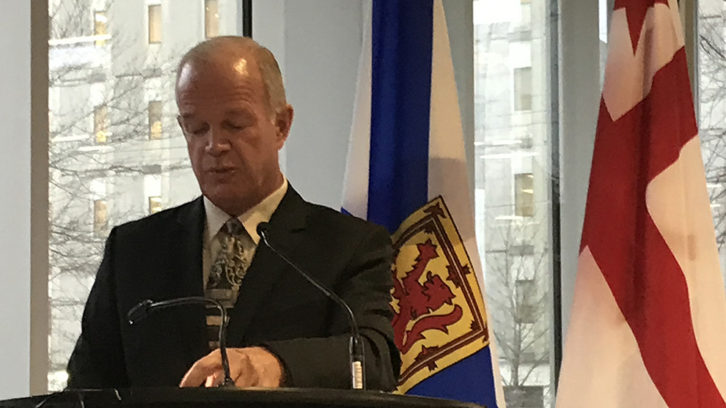Nova Scotia’s libraries, universities, municipalities have one year to come up with accessibility plan
Province still plans to be completely accessible by 2030

caption
Michelle Mahoney at Dalhousie University. She has worked there for over 20 years.Michelle Mahoney remembers how challenging it was to get around campus when she was a student.
As someone who lives with a physical disability, she hopes one day all universities are accessible.
On Tuesday, the province announced that the universities, villages, municipalities, community college and libraries are required to come up with an accessibility plan in a year.
“I’m very proud of this announcement,” said Mahoney, who works at Dalhousie University. “I hope to be consulted more, but I think it’s great.” Related stories
This was announced by Mark Furey, the cabinet minister responsible for the Accessibility Act. That legislation sets out the goal for a fully accessible province by 2030.
On April 1, 2020, the institutions covered Tuesday will become “public sector bodies,” which will make them covered by the act.
On the same day in 2021, the Nova Scotia Health Authority, IWK Health Centre, Halifax Regional Centre for Education, and Conseil scolaire acadien provincial will be added to the list.
Universities weren’t officially required to have an accessibility plan before this announcement. But, Nova Scotia’s Access by Design 2030 plan mentions “education standards” to be implemented in 2021, and says these include higher education.

caption
Justice Minister Mark Furey is responsible for the Accessibility Act.Pamphlets and toolkits were handed out at Tuesday’s announcement, providing instructions on how to follow the new rules. These public sector bodies will have to form advisory committees, which will be required to consult with people who live with disabilities.
Eric Stackhouse, CEO of Pictou Antigonish Regional Library, said he’s enthusiastic about the new mandate.
At Tuesday’s announcement, he told the story of one of his library’s regular visitors.
Chris, who’s 30 years old, is clinically blind, diabetic, and requires dialysis three times a week, said Stackhouse. Through funding, they were able to get him a special audiobook player that has podcast capabilities, and can connect wirelessly to streaming services.
“We also introduced him to other library users with similar accessibility needs, and they give him support. It becomes a larger community,” Stackhouse said.

caption
Eric Stackhouse, CEO of Pictou Antigonish Regional Library, wants to make the library more accessible.Teri Balser, Dalhousie’s interim president and vice-chancellor, said she was receptive to the change, but admits it’s going to be a long road.
“As you can imagine, the older buildings pose some challenges,” she said. “In addition to physical changes to the buildings, meeting accessibility standards will require important changes.”
Mahoney said the province seems to be on the right track. She hopes to be more involved, but says she’s excited to see the changes to come.
About the author
Julian Abraham
...
